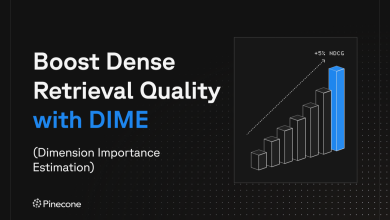
Accounting has come a long way since its earliest days. It is no stranger to the digital advances which are helping to transform many organisation’s functions. However, enter AI: and those two letters often spark a curious mix of panic and promise.
For years, the accounting world has been grappling with a talent crunch. Professionals are leaving the field in droves, fewer students are choosing accounting degrees, and those who remain are under more pressure than ever. The result? A perfect storm of long hours, rising expectations, and burnout.
Now, the profession is facing one of its most transformative moments. One where AI is stepping in to ease the load, giving accountants the freedom to focus on the kind of strategic, meaningful work that truly moves the needle.
What’s holding AI back?
Despite all the potential, deploying AI in accounting isn’t without its challenges. Skills and resources are two barriers that spring to mind, especially for small and mid-sized organizations. But refusing to adapt could mean falling behind.
Accounting teams will need to upskill and adopt new ways of working. Change can be uncomfortable, and some employees may feel uncertain or even threatened by automation. That’s where leadership plays a critical role. When organisations position AI clearly, as a tool to support and uplevel, not replace their teams, it helps ease anxiety and build trust. A strong vision from leadership, backed by the right training and communication, can make all the difference between resistance and readiness.
Another challenge is choice overload. With a growing market of AI tools, it’s easy to be dazzled by features that look great on paper but don’t deliver where it counts. For accountants handling sensitive financial data, security, and regulatory compliance must come first. Any AI system must be trustworthy, auditable, and built with privacy at its core.
So yes, the barriers are real. But the payoff? It could redefine the profession entirely.
AI as a helping hand
Think of AI as the ultimate assistant, one that never gets tired, never misses a beat, and can handle the repetitive tasks that drain time and energy from finance teams. From data entry to transaction matching to invoice processing, these tools are taking the grunt work off accountants’ plates so they can focus on what really matters: strategic thinking, creative problem-solving, and driving business value.
But AI’s role is quickly evolving beyond just automation. Tools powered by natural language processing (NLP) are making it easier than ever for accountants to interact with complex data, simply by asking a question. Instead of digging through spreadsheets, finance teams can now ask their AI assistant for a breakdown of this month’s variances or a summary of upcoming accruals.
As AI-as-a-Service (AIaaS) platforms become more mainstream, these capabilities are no longer reserved for enterprise giants. Subscription-based access to AI tools means smaller organisations can affordably tap into next-gen tech without a huge upfront investment.
Meet the AI Agents
Some of the most exciting advances in AI for finance are happening through AI agents, digital specialists trained to tackle specific workflows, like journal entries, reconciliations, or financial reporting.
Picture an agent that pulls raw data from multiple systems, generates compliant journal entries, and posts them without human input. Or one that takes messy, unstructured data and transforms it into clean, standardised outputs, ready for analysis or audit.
And we’re only just getting started. Some solutions allow accountants to create custom AI agents using natural language prompts with no technical background required. These tools will flex to workflows, not the other way around.
With advancements in predictive analytics and robotic process automation (RPA), AI agents are beginning to offer recommendations, not just reports. They can flag unusual spending patterns, forecast risks, and suggest proactive steps, cutting down decision fatigue and helping finance leaders stay ahead.
It’s all about elevating accountants’ jobs and turning preparers into reviewers. With AI handling the repetitive work, accountants can focus on what really drives value. That’s not just good for business, it’s good for people.
Smarter compliance, fewer headaches
Regulatory complexity is growing fast, especially with the UK’s Making Tax Digital initiative, or EU digital reporting mandates, but AI is proving to be a powerful compliance partner. These systems can monitor regulatory changes in real time and automatically adjust internal processes to reflect new requirements, reducing the burden on finance teams to manually keep up.
AI also improves the accuracy and speed of reconciliations, strengthens internal controls, and makes the month-end close far less painful. Transaction monitoring becomes automated. Reports can be generated and submitted faster. And audit trails? AI can build those too, line by line, with complete visibility into every action.
The result is fewer errors, lower risk of penalties, and a lot less time spent scrambling to meet compliance deadlines.
The bottom line
AI isn’t about removing humans from accounting, it’s about removing the barriers that stop humans from doing their best work. It’s the solution to burnout and the ongoing talent crisis, the key to modern compliance, and the future of meaningful, fulfilling finance careers.
By using AI, accountants don’t become obsolete, they become more essential. Their role shifts from record-keepers to strategists, from box-tickers to business-builders.
Yes, there are challenges to adoption. But with the right tools, leadership, and mindset, AI can unlock a version of accounting that’s smarter, faster, and perhaps unexpectedly, more human than ever before.




